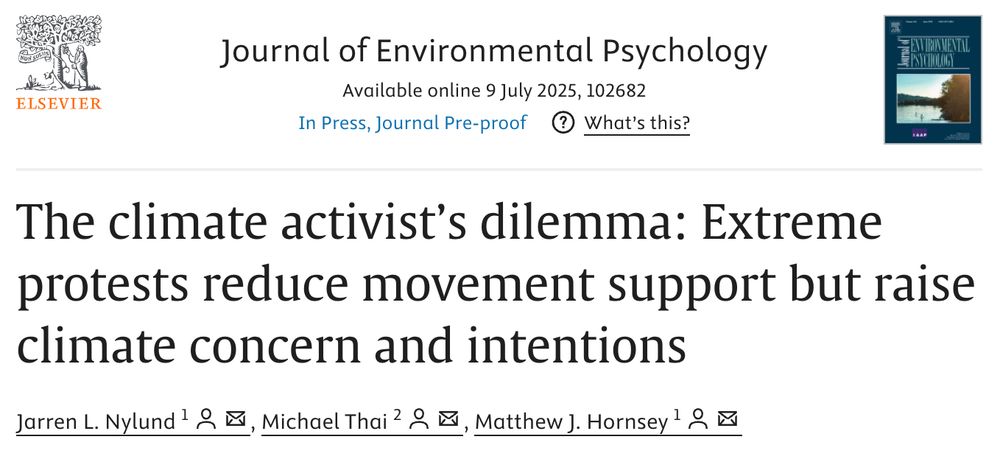Jarren Nylund
@jarrennylund.bsky.social
620 followers
900 following
44 posts
🎓 PhD Candidate (Social/Environmental Psychology)
🌱 Member of @GreenpeaceAP.bsky.social’s General Assembly
🌏 @ClimateRealityProject.org Leader
💁🏻♂️ Pronouns: He/him
🔗 Find me on other platforms: bio.site/jarrennylund
Posts
Media
Videos
Starter Packs
Pinned
Reposted by Jarren Nylund
Reposted by Jarren Nylund


















